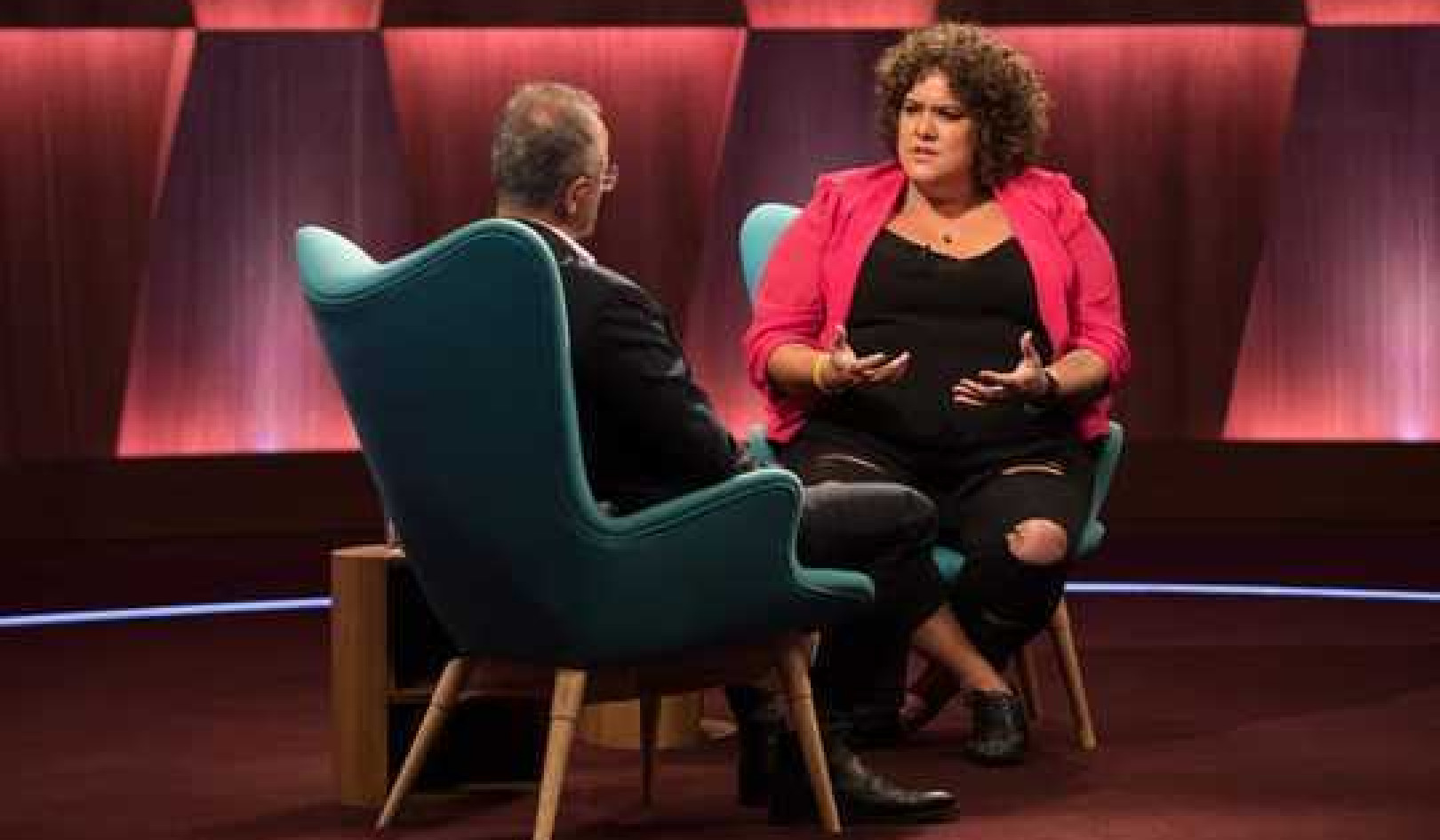
Image by DarkWorkX
In writing a play or screenplay, whether for a TV show or movie, writers use the elements of drama in order to construct their story. The basic elements of drama are: setting, plot, characters, theme, and style:
- The setting is where the story takes place.
- The plot is the sequence of events that make up the story.
- The characters are the individuals in the story.
- The theme is the main idea or the lesson.
- The style is everything that gives the show a certain flavor or feel, such as the time period, the language, and the costumes, makeup, and behavior of the characters.
Think about different TV shows that have been on over the years: Leave It to Beaver in the 1950s, The Dick Van Dyke Show in the 1960s, All in the Family in the 1970s, Family Ties in the 1980s, Home Improvement in the 1990s, and Desperate Housewives in the 2000s. Although the setting (the family home), the plot (the adventures of a typical modern-day family), and the characters (mom, dad, kids, neighbors, and friends) are fairly consistent, the theme and the style of each show are vastly different.
Each show was set in a different decade and a different part of America, giving them all distinctly different styles. While shows such as Leave It to Beaver had a theme that supported the correctness of the fifties status quo, All in the Family encouraged shaking up the status quo and accepting change.
Your Life Is A Three-Part Series
Your life is like a three-part series, with season 1 being your past, season 2 being your present, and season 3 being your future.
In your mind, summarize the first two seasons of your life, thinking about the setting, plot, characters, theme, and style, before launching into a detailed screenplay for the third and final season.
Specifically, what are the unifying themes, lessons learned, and values portrayed? What issues, if any, arose repeatedly season to season? Was there a definitive shift from one season to another, where you took more ownership or control over your life or where the style or theme changed over to something entirely different? List the various roles you have played.
Will they shift in season 3? Are any roles or characters written out of the script altogether? Do the changes you make affect the other characters? At the very end of season 3, is there regret? Are there more changes you wish you had made that you didn’t? Is the ending a peaceful, happy resolution?
Ponder the following sample hypotheticals to see how changing just one element changes the screenplay entirely.
Setting
How would your favorite show or series be different if the families portrayed had lived in a different time or place? What if Leave It to Beaver had been set in downtown Manhattan, if All in the Family had taken place on an American compound in Iran, or The Dick Van Dyke Show had taken place in 2016?
What are the settings of your life? How would things have been different if you had lived in a different part of the country or in an entirely different country altogether? What might you have struggled with if you had been born in a different generation? Going forward, are you going to change the setting of your life? What impact is that going to make?
Plot
The plot is the order or sequence of events in a story. Would the plot of your favorite show be different if the characters were a different ethnicity or if the protagonist had a profound mental or physical limitation?
Similarly, would the plot of your life be different if you were born into a different religion or a different socioeconomic class or with much more, or much less, intellectual capacity? It’s kind of crazy to stop and think how fragile our lives really are and how their entire trajectory can be altered by one or two factors. What are the next big events in your life? When will they happen, and what changes come from each of those events?
Characters
The characters are the people in the story. It doesn’t matter who we are or what we do; those around us affect our lives more significantly than just about any of the other factors. It helps to pay close attention to the company we keep and our beliefs about the company we keep. To fully understand the impact of the characters, imagine a character swap between Leave It to Beaver’s June Cleaver and Game of Thrones’ Daenerys Targaryen, and you’ll understand the impact and importance of characters!
Who were the characters in your life? How would your life be different if you had (or had not) been raised by an alcoholic or an abusive parent? Would the experience of being raised by an alcoholic or abusive parent be different if you believed that your familial situation was abnormal and shameful and something to be hidden, or if you believed that it was normal and acceptable and you could freely discuss your experience without shame? How we view the characters in our lives makes almost as big a difference as who those characters are.
Who are the characters in the screenplay of your life? What roles do they play? How do you feel about those characters? Imagine if one central person in your life had not been there and the impact their absence would have on you, as well as all the other characters in your life.
Now for the million-dollar question: Are you the main character in your own life? Ouch.
It is not uncommon for us to keep ourselves in orbit around others and to define our role in relation to them. You know, I’m a wife (to my partner, who is primary), a mom (to my kids, who are primary), a lawyer (to my clients, who are primary); you get the gist.
Right now I don’t care about your roles or who else is in your life; I care about you. This is your story. Not your partner’s, not your children’s, not your clients’, but yours. They each have their own stories. Of course, your stories intersect, but until you are clear on the role you play in your own (spoiler alert — you are the lead!), your character is probably not defined enough. Re-choreograph your life and make your third season all about you.
Theme
The theme is the philosophy, moral lesson, or central idea. Themes get tricky because most of our lives contain a series of intertwining ones, whereas in the entertainment industry the number of themes typically must be limited in order to produce a coherent show. For example, the theme of “family love conquers all” was portrayed week after week in Family Ties as the liberal ex-hippie parents and their conservative children were forced to reconcile their differences time and time again, but there were subplots and auxiliary themes that were played out between the various characters as well. In real life, many of our themes are not that coherent, consistent, or easy to spot.
What are some of the themes in your life? Are there themes that keep popping up again and again? Take special notice of the themes that repeat in your life.
Pretend you are in line at the pearly gates, chatting with the souls around you about the lives you just left. Was there an overarching theme to your life? Did the theme change as you grew, or did it remain consistent throughout your lifetime?
How do you feel about this theme? Do you like it, or would you like to write a different one? The good news is, you are currently not standing in line at the pearly gates. You are here on Earth, and no matter how old you are, you still have time to make changes! What is your new theme?
Style
Comedy, sit-com, tragedy, soap opera, drama, romance, erotica, suspense, melodrama — there are many different styles that movies, television shows, or our own lives can take. Sometimes shows that are set in a different era, like Mad Men or The Jetsons, are given an exaggerated vintage or futuristic style. What if they had a different style altogether and had been produced as documentaries?
Just like our clothing, hair, and makeup, our — dare I say? — lifestyle is a reflection of our personality, our desires, the way we want to feel, and the way we interact in the world. Have you ever noticed that you have more energy and feel better about yourself on days that you look better?
We don’t have to be dressed to the nines or rocking leopard-print stilettos in order to feel good about ourselves, but the style we put forth into the world influences what we get back from others. If we look strong and confident, others treat us as strong and confident. If we look like day three of the stomach flu, others treat us like we are on day three of the stomach flu.
What is the style of your life? Is it extravagant or simple, messy or streamlined? Are you a harried single mom or a busy but centered single mom? Oftentimes we can change the entire tone and feel of our lives by simply being aware of the style we embody and changing it up.
I am not joking when I say that how we think about ourselves affects how we feel about ourselves. If you can identify both the style of your current life and the style of the life you wish to attain, you can unequivocally have the life you wish to attain if you live and embody that style.
I’m not saying that you will go from being homeless to living in a mansion simply by changing your style. But I’m not saying that you won’t, either! I’m simply saying that if your kids, dog, or partner or you yourself were up all night with the stomach flu and you feel like you were hit by a truck, you can make yourself feel better by shifting your style.
Let’s say that the morning after the stomach-flu incident you have to drive car pool and lead a telephone conference at work. Can you feel the difference in your energy, outlook, and mindset if you:
- forgo a shower, put on your winter coat over your sweats, slap on dark sunglasses, and move through the day without brushing your teeth; or
- brush your teeth, take a quick shower, put on a semicoordinated yoga/fitness-like outfit, slap on some lip gloss, and pop in a pair of fun earrings?
I am not joking when I say that lip gloss makes me run farther and faster. It does. Style matters. Even when nobody sees you, style matters because it informs you about yourself.
Going back to your life and the style of your world: Does it have a slick, urban feel or a down-home, country one? Is your life a fairy tale, a rom-com, or a docudrama? Has the style of your life been consistent throughout, or has it changed? Are you currently experiencing a cohesively styled life; or does the style of your life differ between work and home depending on the people you are with?
I’m not talking about being more lighthearted with your group of college friends than you are with your colleagues at the Society of Funerary Accountants. I’m talking about multiple-personality type of differences within your everyday world and relationships. Moving seamlessly in and out of a variety of different styles is healthy and enlivening. Living in a state of constant agitation, where you are constantly flipping into and out of a variety of identities, is not.
Re-Choreograph Your Life
Is there anything you can do to re-choreograph your life that will create a more healthily consistent style to it? Remember your identity and brand, and find something concrete that represents your life’s style.
This exercise is designed to give you a deeper understanding of your life as a story and of yourself as a character who is adept at playing a wide variety of roles. Perhaps these roles and scripts have fit you well, and perhaps they haven’t.
Recognize and release what you no longer wish to carry. Going forward you have a choice. You can write your own script, or you can have somebody else write it for you. Nobody says you have to create your own life at all. You can create your own roles and play them how you feel they ought to be played, or you can accept the roles others give you. What will you choose, and what will you reveal?
Whip out that journal. Spend some thoughtful, quality time writing out the screenplay for season 3 of your life. You can be as detailed as you wish, or you can be rather vague, as long as you commit to following your heart.
In my case, I had no idea that being a burlesque dancer was even a thing! There was no way I would have written a script for that, because I didn’t know it existed. My commitment was to follow my own rules, write my own scripts, and honor what my heart told me was right for me.
Copyright ©2019 by Lora Cheadle. All Rights Reserved.
Reprinted with permission from the book, FLAUNT!.
Published by : New World Library. www.newworldlibrary.com
Article Source
FLAUNT!: Drop Your Cover and Reveal Your Smart, Sexy & Spiritual Self
by Lora Cheadle
 Attractive woman, savvy career professional, devoted wife and mother, caring daughter — the list of roles women play is endless. We may have chosen and cherish these roles, but nevertheless, they may occasionally chafe. What lies behind these roles? FLAUNT! dives deep into how and why you got where you are and uses laughter, play, and storytelling to help you express your truest self with self-love, sass, and joy. Discover how to build rock-solid self-worth while finding freedom and fun. (Also available as a Kindle edition and as an Audiobook.)
Attractive woman, savvy career professional, devoted wife and mother, caring daughter — the list of roles women play is endless. We may have chosen and cherish these roles, but nevertheless, they may occasionally chafe. What lies behind these roles? FLAUNT! dives deep into how and why you got where you are and uses laughter, play, and storytelling to help you express your truest self with self-love, sass, and joy. Discover how to build rock-solid self-worth while finding freedom and fun. (Also available as a Kindle edition and as an Audiobook.)
More Books on this topic
About the Author
 Lora Cheadle is a former corporate attorney turned female-empowerment coach, speaker, radio personality, and the world’s first Life Choreographer. She is the creator of FLAUNT! and Find Your Sparkle coaching programs, workshops, and destination retreats and has performed burlesque widely as Chakra Tease. Find out more about her work at LoraCheadle.com
Lora Cheadle is a former corporate attorney turned female-empowerment coach, speaker, radio personality, and the world’s first Life Choreographer. She is the creator of FLAUNT! and Find Your Sparkle coaching programs, workshops, and destination retreats and has performed burlesque widely as Chakra Tease. Find out more about her work at LoraCheadle.com




























